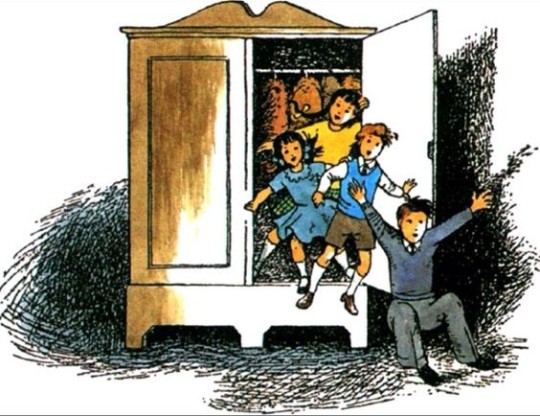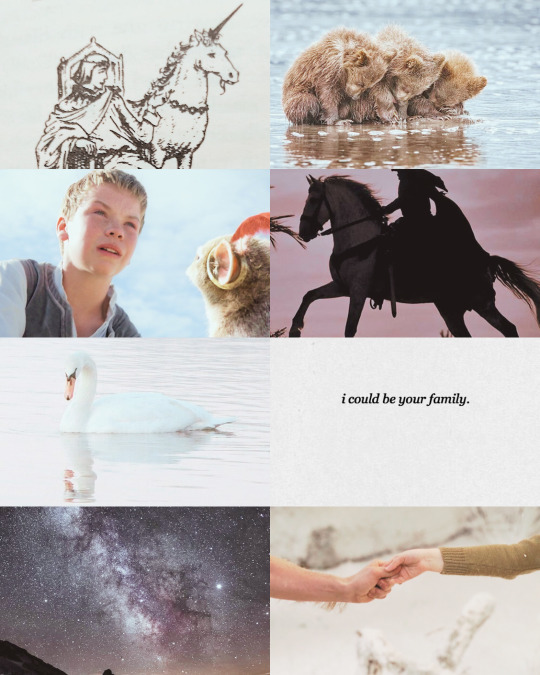#C. S. Lewis
Explore tagged Tumblr posts
Text

This was on @whatareyoureallyafraidof's post where they put up this:

And I responded with this image:

and promised in the tags to elaborate if asked. And, @frodo-the-weeb, I will. But it's going to get long and I'm going to have to split it up into several reblogs.
First of all, since not everybody in the world is a Silmarillion enthusiast, let me explain what we're referring to.
One of the stories in the Silmarillion, and possibly the one Tolkien cared about the most, is the tale of Lúthien and Beren; a highly condensed version of a narrative poem called the Lay of Leithian, which Tolkien began writing in the 1930s and tried to get his publisher interested in after the success of The Hobbit.
(Their readers said no, and they tactfully asked him to focus on his Hobbit sequel instead. "The result," in Tolkien's own words, "was The Lord of the Rings.")
The skeleton of The Lay of Leithian is as follows; I'm intentionally leaving out a bunch of information that weaves it into the overarching story of the Silmarillion but isn't relevant to the thesis I'm advancing here.
Lúthien, an Elven princess and enchantress, falls in love with a mortal man, a ranger called Beren. Her father, the Elven King Thingol, disapproves and sends him Beren off to fetch one of the jewels from the crown of the Dark Lord Morgoth. Lúthien tries to join Beren but her father imprisons her in a tower to stop her, only it's actually a treehouse because they're forest elves. Lúthien magically grows her hair long and uses it to escape. By the time she catches up with Beren he is chained in the dungeons of Morgoth's second-in-command, Thû (whom Tolkien later renamed Sauron). She rescues him with the help only of a dog, who defeats Thû himself in single combat. They then live in the forest together for quite some time, but Beren feels bad about being the reason she can't go home to her family, and still intends to finish his mission and get the jewel. He leaves one morning while she's still asleep, so as not to put her in danger, and then when he's on the threshold of Morgoth's underground fortress in the far North of Middle-Earth she catches up with him again and he accepts that she's not going to be put off. Together they enter Morgoth's fortress and make their way to his throne room. They are in disguise but Morgoth is not fooled and uncovers Lúthien in front of everyone, declaring his intention to make her one of his many slaves. Lúthien offers to sing and dance for him, which is the way she works her magic. She puts everyone in the throne room to sleep, including both Beren and eventually Morgoth. She wakes Beren and he takes the jewel and they flee, but as they get to the outer door they are stopped by Morgoth's guard-wolf, who bites off Beren's hand holding the jewel.
That's as far as Tolkien ever got with the poem, but we have the synopsis in the prose Silmarillion to tell us the rest of the story; again cutting it down to the quick, Thingol accepts Beren as his son-in-law, Morgoth's guard-wolf attacks Doriath, Beren goes and hunts it but is mortally wounded, his spirit goes to the Halls of Waiting in the Undying Lands where the dead in Middle-Earth go, Lúthien also goes there and, again through her magical song, persuades Mandos the god of the dead to let him come back. Mandos offers her a choice: live on immortally as an Elf without Beren, or return to Middle-Earth with Beren but both of them will grow old and die. She chooses the latter.
Tolkien created Lúthien as a portrait of his wife Edith, which makes Beren a picture of himself. We know this for a fact because he had LUTHIEN written on her grave when she died, and when he joined her in it two years later the name BEREN was written for him:

Now on the lower right side of my response image you'll see Pauline Baynes' illustration of the Lady in the Green Kirtle from The Silver Chair, one of C. S. Lewis's Narnia stories. A quick synopsis of the Lady of the Green Kirtle's part in the story:
The Lady is a witch who rules a gloomy kingdom underneath Narnia, accessible through a fissure in the earth in an old ruined city far to the North. Before the story opens she has enspelled and kidnapped King Caspian's son Prince Rilian, whom she intends to send leading an army to conquer Narnia in her name. For twenty-three hours a day he is her willing slave and lap-dog; to maintain the spell, he must be bound to the titular silver chair for the remaining hour, during which he is sane and aware of his imprisonment. The protagonists, Eustace and Jill and their guide Puddleglum, meet her and Rilian unawares on their journey to the North; she sends them astray and almost succeeds in getting them eaten by giants. Eventually they rescue Rilian from the chair, but she sings a magical song which very nearly puts them all to sleep but for Puddleglum's intervention. Foiled, she transforms into a serpent, attacks them, and they kill her.
It is my contention that the Lady in the Green Kirtle is Lewis's caricature of Lúthien, with the enslaved and befuddled Prince Rilian representing Beren; and further, that Lewis knew or recognised that Lúthien and Beren were a literary portrait of the Tolkiens, so that The Silver Chair is ultimately a nasty commentary on their marriage.
In forthcoming reblogs I will lay out my evidence for this thesis.
#lúthien#beren#lady of the green kirtle#prince rilian#silmarillion#chronicles of narnia#c. s. lewis#literature#lay of leithian
6K notes
·
View notes
Text
You can't go back and change the beginning, but you can start where you are and change the ending.
— C.S. Lewis
#c. s. lewis#life quotes#motivating quotes#quotes#quoteoftheday#recovery#motivation#words#positivity#inspiring quotes#inspiration#motivational quotes#poetry#beautiful#books#thoughts#writers#writing#text#literature
4K notes
·
View notes
Text

A Grief Observed, C.S. Lewis
938 notes
·
View notes
Quote
There are far, far better things ahead than any we leave behind.
C. S. Lewis
#C. S. Lewis#motivation#quotes#poetry#literature#relationship quotes#writing#original#words#love#relationship#thoughts#lit#prose#spilled ink#inspiring quotes#life quotes#quoteoftheday#love quotes#poem#aesthetic
336 notes
·
View notes
Text

380 notes
·
View notes
Text


The first candle of advent: HOPE
"Well, you know how it feels if you begin hoping for something that you want desperately badly; you almost fight against the hope because it is too good to be true; you've been disappointed so often before. That was how Digory felt. But it was no good trying to throttle this hope. It might—really, really, it just might be true." The Magician's Nephew, C. S. Lewis
273 notes
·
View notes
Quote
There are far, far better things ahead than any we leave behind.
C. S. Lewis
#C. S. Lewis#motivation#quotes#poetry#literature#relationship quotes#writing#original#words#love#relationship#thoughts#lit#prose#spilled ink#inspiring quotes#life quotes#quoteoftheday#love quotes#poem#aesthetic
320 notes
·
View notes
Text
✨ Designing Characters in The Horse and His Boy: Queen Susan the Gentle ✨ (scroll down for the breakdown of the design)
I apologize for disappearing. I had an art crisis. I liked my latest art style but it wasn't as fulfilling as my 2024 one but the 2024 one is burdensome. So, I combined both.

I manually drew all the patterns that you see in this illustration. Five minutes into it and I began questioning my life choices.
Also, I am feeling a bit hopeless since Monday. There are only two beacons of hope for me. And here's what happened to both of them this week:
As a lapsed Catholic, there's only one Catholic person that I still love, respect, and admire. Sadly though, he died last Monday. My initial reaction was denial: I did not want to believe that we now live in a world where there's no more Pope Francis. The next day, I was beginning to accept and hope that the next pope would also serve with as much (or better, with even more) compassion and love as Pope Francis.
Then, I came across a news that the only public servant that I admire went on to support the senatorial bid of a homophobic holier-than-thou politician (you know him, I'm pretty sure) and I am beginning to lose respect for her. And I just want to go full Obi-Wan Kenobi on her and say, "It was said that you would destroy the Sith, not join them!"

#the chronicles of narnia#narnia#tcon#narnia fanart#susan pevensie#queen susan#queen susan the gentle#the horse and his boy#cs lewis#c. s. lewis#small artist#artists on tumblr#amalthiaph#amalthia finally draws narnia#amalthia:nims
95 notes
·
View notes
Quote
There are far, far better things ahead than any we leave behind.
C. S. Lewis
#C. S. Lewis#motivation#quotes#poetry#literature#relationship quotes#writing#original#words#love#relationship#thoughts#lit#prose#spilled ink#inspiring quotes#life quotes#quoteoftheday#love quotes#poem#aesthetic
170 notes
·
View notes
Text
So my post from December about the relationship between Tolkien's Lay of Leithian and the Narnia book The Silver Chair has gotten traffic again over the past week for some reason, and someone called @violetutterances left these tags:
#this was deeply fascinating as someone who has read both Lewis and Tolkien #I'd love to hear op's thoughts about The Susan Problem #I have no dog in that fight because I haven't been interested in Lewis since college but I'd love op's commentary within the context of thi
Hopefully this is not going to get "colour of the sky long" this time. Lots of other people have talked about the Susan Problem before, whereas I've never found anyone else who's noticed the Leithian-Silver Chair connection.
In case anyone reading this is in today's lucky 10,000, "the Susan Problem" is about what Lewis does with Susan Pevensie in The Last Battle. In the course of the series, eight children from Our World cross into Narnia; in The Last Battle all of them except Susan have formed a secret society called "the Friends of Narnia". The events of the book see the Friends gather in what turns out to be Aslan's Country (=Heaven) after the Narnian world comes to an end. A Narnian character comments on Queen Susan's absence, and the following exchange ensues:
"My sister Susan," answered Peter shortly and gravely, "is no longer a friend of Narnia." "Yes," said Eustace, "and whenever you've tried to get her to come and talk about Narnia or do anything about Narnia, she says 'What wonderful memories you have! Fancy your still thinking about all those funny games we used to play when we were children.'" "Oh Susan!" said Jill, "she's interested in nothing now-a-days except nylons and lipstick and invitations. She always was a jolly sight too keen on being grown-up." "Grown-up, indeed," said the Lady Polly. "I wish she would grow up. She wasted all her school time wanting to be the age she is now, and she'll waste all the rest of her life trying to stay that age. Her whole idea is to race on to the silliest time of one's life as quick as she can and then stop there as long as she can." "Well, don't let's talk about that now," said Peter.
Not counting Peter, who is clearly uncomfortable with the whole subject, that's three statements about Susan and three points made. The message most readers take from the whole dialogue is: Susan grew up, she got interested in boys, Lewis disapproves so he sent her to Hell.
The real picture is more complicated than that -- but not necessarily better.
Whilst I do hope this thread doesn't get as long as the previous one, that's enough for one post. I'll be back.
155 notes
·
View notes
Text
The chronicles of Narnia illustrations















-by Pauline Baynes x x x x
#narnia#the chronicles of narnia#c. s. lewis#cs lewis#books and reading#illustration#illustrator#art#pauline baynes#peter pevensie#edmund pevensie#susan pevensie#lucy pevensie#jadis the white witch#narnians#aslan#the pevensies#prince caspian#booklr#bookish#fantasy#bookworm#fairytale#fairy aesthetic
368 notes
·
View notes
Text

A Grief Observed, C.S. Lewis
603 notes
·
View notes
Text
.... I cannot help thinking that any religion which begins with a thirst for immortality is damned, as a religion, from the outset. Until a certain spiritual level has been reached, the promise of immortality will always operate as a bribe which vitiates the whole religion and infinitely inflames those very self-regards which religion must cut down and uproot. For the essence of religion, in my view, is the thirst for an end higher than natural ends; the finite self’s desire for, and acquiescence in, and self-rejection in favour of, an object wholly good and wholly good for it. That the self-rejection will turn out to be also a self-finding, that bread cast upon the waters will be found after many days, that to die is to live — these are sacred paradoxes of which the human race must not be told too soon.
C. S. Lewis, "Religion without Dogma?" in God in the Dock
63 notes
·
View notes
Text








“Suppose we have only dreamed, or made up, all those things―trees and grass and sun and moon and stars and Aslan himself. Suppose we have. Then all I can say is that, in that case, the made-up things seem a good deal more important than the real ones. Suppose this black pit of a kingdom of yours is the only world. Well, it strikes me as a pretty poor one.” ― C.S. Lewis, The Silver Chair
More: The Voyage of the Dawn Treader aesthetic moodboard
#the silver chair#narnia#the chronicles of narnia#chronicles of narnia#cs lewis#c.s. lewis#c. s. lewis#puddleglum#underland#quotes#cs lewis quotes#aesthetics#moodboards#narnia aesthetic#fan art#narnia fan art
180 notes
·
View notes
Text


The fourth candle of advent: LOVE
"'Ah!' roared Aslan. 'You have conquered me. You have great hearts. Not for the sake of your dignity, Reepicheep, but for the love that is between you and your people, and still more for the kindness your people showed me long ago when you ate away the cords that bound me on the Stone Table (and it was then, though you have long forgotten it, that you began to be Talking Mice), you shall have your tail again.'" Prince Caspian, C. S. Lewis
#thenameofaslan#the chronicles of narnia#narnia#c. s. lewis#photoset#edit#christmas#love#mod veriele
199 notes
·
View notes
Quote
There are far, far better things ahead than any we leave behind.
C. S. Lewis
#C. S. Lewis#motivation#quotes#poetry#literature#relationship quotes#writing#original#words#love#relationship#thoughts#lit#prose#spilled ink#inspiring quotes#life quotes#quoteoftheday#love quotes#poem#aesthetic
82 notes
·
View notes